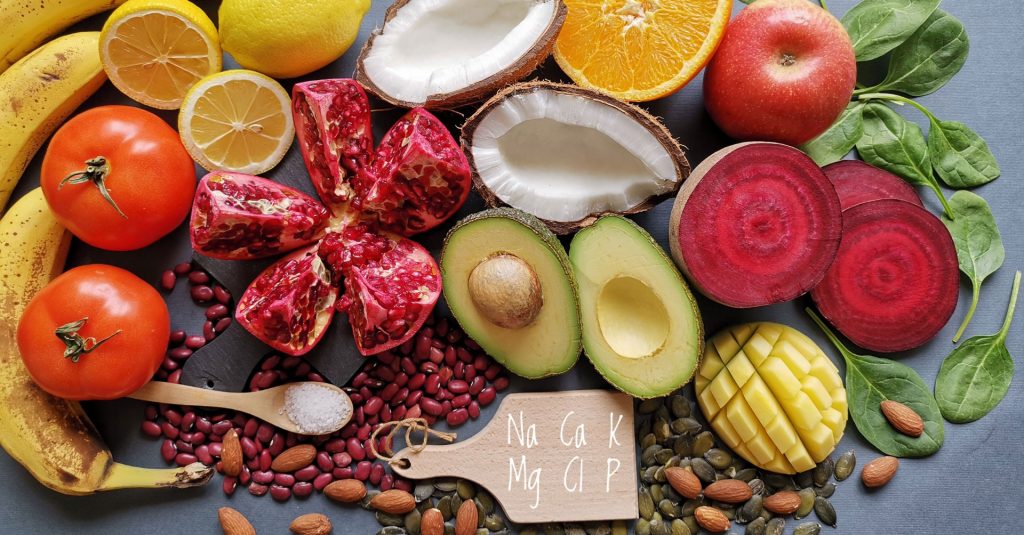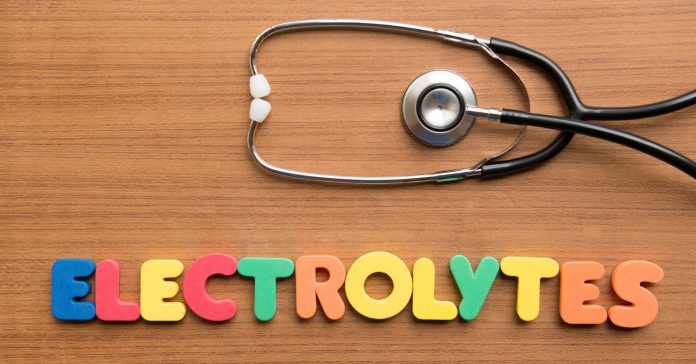Electrolytes and fluids are necessary for all cells, organs and even the human body itself to function properly. These substances are electrochemical in nature and help maintain a proper balance between chemicals. Electrolyte fluid is used in the skin to help prevent dehydration and can also help keep the body from becoming starved of vital nutrients. The electrolytes keep those fluids moving that is needed for the skin to retain moisture and to retain colour.
What Electrolytes Do
Electrolytes play an important part in your human body’s functions. Without enough of them, it is nearly impossible to carry out normal functions, especially when there is a lack of fluid in the body. Electrolyte fluids are found in the muscles of the human body as well as in the brain. They are what help to keep the communication going between the two.
Some essential electrolyte sources are found naturally in our foods and water, while others may need to be added to our diet. Some people may need to consume more than others because they may have health problems or an existing condition that affects their electrolyte needs. This can happen when someone is ill with the flu as well. Electrolyte fluid should always be consumed before a workout, if possible.
Where Electrolytes Are Found in the Body
The three main sources of electrolyte fluids are water, muscle, and red blood cells. Water is always the first on the list because it helps flush out the wastes in the body. If you are dehydrated, the body will use this liquid to replenish itself. Muscle cells also contain electrolytes that help maintain the body’s electrical balance and enable it to perform properly without becoming overworked.
Red blood cells are the last type of electrolyte fluid to come to mind. Red blood cells require an electrolyte fluid source in order to continue operating correctly. Some people may need a vitamin, mineral or enzyme supplement to provide these fluids for them.
Lack of Electrolytes
For some people, there may not be enough electrolyte liquid in the diet. This is particularly true of people who are diabetic, pregnant, or taking medication. It may be difficult for them to take in a sufficient amount of fluid without harming their health. For people with kidney or heart conditions, the body’s ability to metabolize food may be compromised. There are special supplements that can help a person who has kidney problems to get electrolytes from their diet.
Another issue that affects electrolytes in the body is that the blood sugar level can drop. too much glucose in the blood is absorbed by the cells and this can cause a drop in blood electrolyte levels. When the blood sugar level drops, the body does not have the ability to absorb calcium, which is needed for the bones. People who are on diuretics or diuretic medications may suffer from low levels of electrolytes, too.
The solution is to ensure your body gets its daily dose of electrolytes. Whether it’s in liquid form, a supplement, or food, it is important for your system to operate properly and not be dehydrated.
What exactly are the 4 sources of electrolytes that you should be taking daily, and what exactly do they do for your body. The answer is potassium, magnesium, chloride, and calcium.
1. Potassium
Potassium is both a mineral and an electrolyte. Its basic function is to keep your body balanced with electrolytes and maintain the amount of fluid in the body’s cells. It is vital for how your muscles and nervous system works.
Your potassium correlates with the sodium in your body. When one goes up, the other goes down, and vice-a-versa. When the potassium level in your body is too high or too low, it can cause serious conditions such as low blood pressure, nausea, constant urination, muscle weakness, confusion, or even paralysis.
2. Magnesium
Magnesium is also very important with regards to your electrolytes. This chemical is vital in the transporting of oxygen and calcium into the various cells of your body. It is directly related in affecting your potassium and sodium levels as well. To prevent excess cramping and muscle contractions, magnesium must be a core part of your daily regimen.
3. Chloride
Chloride may be one of the most vital of the electrolytes in your body. It is actually this compound that balances the amount of fluid both outside and inside the cells of your body. Chloride is also known to maintain your blood pressure, your blood volume, and the PH level of your fluids. Generally, chloride comes from the salt that your body takes in. Your intestines absorb the sodium chloride as you are digesting. Any extra chloride in your body is eliminated through your urine. Although this compound is most important, it does not take much for it to work properly. Only a small amount of salt is needed actually for it to do its job correctly. Basically only 1 teaspoon a day will fulfill its recommended allotment.
4. Calcium
Calcium is a mineral that is basically responsible for carrying electrical charges when its dissolves into the fluids of the body. It is interesting to note, however, that most of the calcium in a body remains not charged. Although most of the body’s calcium is stored in your bones, muscle cells and blood cells also carry this mineral. Calcium is most noted for the essential functioning of muscle contractions, bone and teeth formations, normal heart rhythms, and clotting of the blood. It is interesting to note that calcium is one of the most abundant minerals in the whole body.

Daily Dose of Electrolytes
Vegetables are good sources of electrolyte fluids because they are low in calories and also contain a variety of nutrients and minerals. When vegetables are combined with a source of electrolytes, they provide a complete balanced diet. Most fruits and certain vegetables may also be a good source of electrolytes. However, it is important to read the labels on the fruits and vegetables and know the proper amounts needed. Along with vegetables, there are other kinds of foods that can add electrolytes to your system. These include such things as dairy, nuts, whole grains, and beans.
Each element contains a list of its appropriate food group to best maintain your electrolytes.
- Potassium: sweet potatoes, cooked spinach, prunes, raisins, melons, oranges, tomatoes, peas, avocados, bananas, and nonfat yogurt.
- Magnesium: Dried beans, lentils, peanut butter, nuts, whole grains, and leafy green vegetables.
- Chloride: Lettuce, celery, tomatoes, rye, seaweed, and olives.
- Calcium: Meat, milk, milk products, eggs, fish with bones, beans, asparagus, dried apricots, figs, and fortified cereals.
Eating these foods will provide for a balanced diet as well as replace electrolytes in your body from day to day. If your diet does not include these minerals, you may want to think of enhancing it with an electrolyte beverage or supplement. These can be very beneficial because our diets don’t always include our necessary nutrients. Electrolyte supplements can be found in the stores or online from companies like dripdrop.com.
What Affects Your Electrolyte Level?
The best way to keep the electrolyte fluid in the body is to take in enough fluids. If your blood is not getting enough, then you should consult your doctor for electrolyte tablets or fluids to give you what you need.
Electrolytes are important for different types of activity too. A person who exercises needs more electrolytes than someone who doesn’t exercise at all. If you are a woman and are going through menopause, the body changes a lot during this time and can also affect your electrolyte levels.
Certain medications also can affect your electrolyte levels. Certain foods that should be avoided in a person with a high blood pressure problem include caffeine, chocolate, and alcohol. If you are someone who is taking antibiotics, then you may also need a different type of electrolyte liquid.
Conclusion
As you can see, electrolytes are not just about sports drinks. They are vital minerals that your body needs on a day to day basis to stay healthy and work properly. They can be found in specialised beverages or the food we eat daily. They are important for our day to day functions. Without them, we can become sickly and incapacitated. Our muscles won’t work well, and our brain won’t be able to think. Our heart can become frail and cause complications. It is vital for your body to maintain its electrolytes to prevent oncoming illnesses and dehydration. When in doubt, always contact your physician for any medical advice regarding your diet and your well-being.


